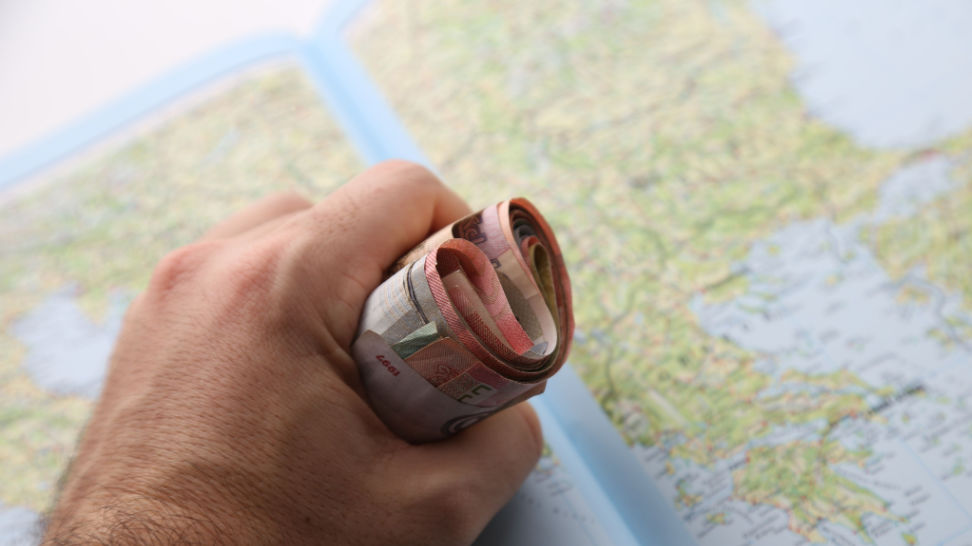Offshore trusts get a bad reputation in popular culture as tax havens for bad actors – or at least, people with something to hide. While some people may try to use foreign trusts to skirt laws or taxes in their home countries, many people all over the world, including U.S. citizens, use offshore trusts as a perfectly legal and legitimate asset protection strategy.
As soon as you start building up any amount of assets or wealth, you should implement an asset protection strategy. Otherwise, your assets are exposed to legal risks from lawsuits, creditor claims, or divorce settlements. Offshore trusts exist to shield your assets from your legal risks.
When setting up any asset protection plan, it’s critical to speak to an experienced professional you trust to advise you on the best offshore trust options. To be genuinely ironclad, your wealth protection strategy should be personally catered to your unique needs and goals.
When do you need an offshore trust? As soon as possible if you have any assets to protect.
What Is the Purpose of an Offshore Trust?
While many favorable offshore trust jurisdictions offer generous tax benefits, tax evasion is neither legal nor the goal of an offshore trust. The actual purpose is protection from lawsuits, also known as asset protection.
Your legal risks increase the more assets you own and the more business interests you control. You’re simply exposed to more liability, or you may become targeted by predators and creditors. If you hold assets under your own name – or even under a corporation you own – they could be seized by a court to satisfy a judgment against you.
An offshore trust essentially creates a barrier between your legal risk and your assets. Anyone looking to enforce a judgment against you will be unable to reach your protected assets. This financial shield can protect your wealth and fortune from being lost to aggressive creditors, malpractice claims, civil lawsuits, and business disputes.
The U.S. courts and many other governments are not shy about seizing assets. By the time you’re in legal trouble, it’s likely too late to protect the assets you have under your name. That’s why it’s absolutely critical to get started early on your asset protection plan.
How Does an Offshore Trust Work?
An offshore trust is a legal tool in your asset protection arsenal – one of the most robust options, in fact. Assets held in offshore trusts can be nearly impossible to reach by others.
A trust works by creating a new legal entity with separate legal ownership and/or control over any assets you transfer to it. When you create a trust and transfer the assets, you become a grantor. You must designate a trustee to manage the assets and a beneficiary.
In a revocable trust, you, the settlor, still keep full power over your assets. Because you retain legal control, your assets remain exposed to your legal liability. With an irrevocable trust, you give up a certain level of control of your assets to the trust. As a result, the assets exist beyond the reach of any legal claims against you. Essentially, if you don’t own the asset directly, it is very difficult for it to be taken from you.
As the settlor, you “trust” the trustee to distribute and manage the assets, which must be done according to the terms of the Deed of Trust. You can name yourself or your heirs as beneficiaries of the trust to continue enjoying the benefits of the assets in the trust. But because you give up control, you must choose your trustee wisely and lay out the terms of your offshore trust clearly to protect your best interests. You can also appoint a role of trust protector to watch over the trustee’s actions.
An offshore trust is simply a trust created in a country different from where you live, work, or do business. Depending on how you set up your offshore trust, you can legally sever your assets from yourself. So, if a creditor, plaintiff, or ex-spouse tries to file a legal claim or lawsuit against you, they won’t be able to reach any of the assets located in the offshore trust.
If you choose the right country or jurisdiction to form your trust, you could enjoy a legal system that offers some of the strongest asset protection laws in the world.
For example, if a creditor wants to reach your trust assets in the country of St. Kitts and Nevis, they must get through significant legal hurdles to do so. First, they must pay a $100,000 deposit and then hire local attorneys to represent them. The country has a 2-year statute of limitations for claiming fraudulent transfer of funds into a trust, after which your assets become extremely difficult to reach. In order to win their case, a plaintiff must prove their claims beyond a reasonable doubt – the highest standard of proof usually reserved for criminal cases in the United States.
With all these protective legal barriers in place, most creditors or claimants won’t even attempt to reach your assets in offshore trusts. Those who do make an attempt, face an uphill and expensive battle which likely will prove futile.
However, you must set up your offshore trust properly to enjoy its asset protection benefits. For example, improperly drafting the trust deed or naming the wrong trustee or manager of an offshore trust could end up compromising your trust’s asset protection. In order to keep trust assets outside the reach of U.S. courts, the trustee should not be a U.S. citizen or conduct any business in the United States.
Best Types of Offshore Trusts
When creating an offshore trust, the type of trust you choose will determine how much protection your assets will enjoy. One of the most important components of asset protection is properly severing the legal connection between you and your assets. To achieve this, you should set up an offshore asset protection trust.
If the idea of giving your assets over to anyone else makes you sweat, you’re not the only one. That’s why these types of trusts, when set up properly, come with protections to ensure your goals and best interests. You can also build safeguards to keep your wealth safe and allow for indirect control of trust assets.
Asset protection and wealth planning are deeply personal and should be treated as such. When you decide to protect your fortune, it’s critical to work with an experienced asset protection attorney who can set up robust terms for your offshore trust. You can rest easy knowing that your wealth is being protected and handled according to the clear terms you laid out.
Best Offshore Trust Jurisdictions
Technically, you could set up a trust just anywhere. But if you’re going through all the trouble of creating an offshore trust, you should find the most advantageous jurisdiction possible.
A number of countries around the world have policies especially favorable toward asset protection. These jurisdictions offer strong privacy protections, robust legal barriers, short statutes of limitations, favorable tax policies, and “defendant-friendly” courts in case you get sued. An asset protection attorney can help you choose the best jurisdiction for you.
- The Cook Islands now have more asset protection trusts registered than any other country in the world – and for good reason, too. This island nation has been a pioneer in asset protection since 1984, with a long and robust history of favorable case law. Even powerful countries like the United States often cannot reach assets held in Cook Island asset protection trusts. Creditors who try face a long and expensive litigation process.
- The island nation of St. Kitts and Nevis has similar advantages, as well as a hefty bond requirement as discussed above. St. Kitts and Nevis offers unique protections such as a shorter expiration timeline for creditor charging orders.
- Belize asset protection trusts are similarly protected from third-party claims or foreign judgments with a history of favorable policies dating back to 1990. Belize trust advantages include no mandatory minimum amounts and a zero look back period for claims of a fraudulent conveyance.
When you create an offshore trust, you can transfer assets in the form of cash, securities, digital assets or cryptocurrency, an LLC, real estate, intellectual property, business equipment or inventory, or high-value recreational assets like cars, yachts, or jets.
One of the most important parts of wealth protection is finding a qualified advisor you trust to make your vision come true. When it comes to your fortune, loose ends are a risk you simply cannot afford. An experienced asset protection attorney can help you make the best choices for your situation so that you can rest easy and enjoy the fruits of your labor.
To discuss your options for setting up an offshore asset protection trust, click here to contact the experienced team at Blake Harris Law now.



